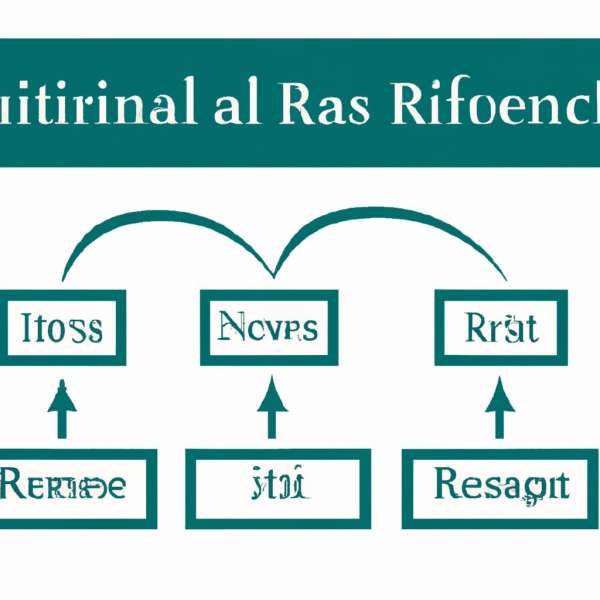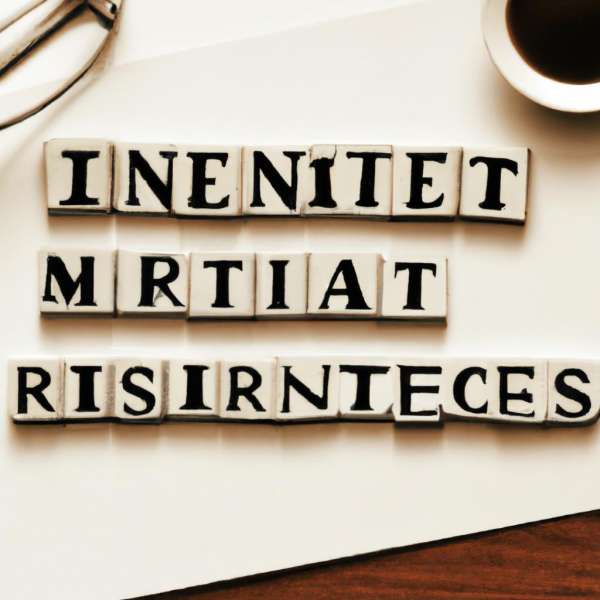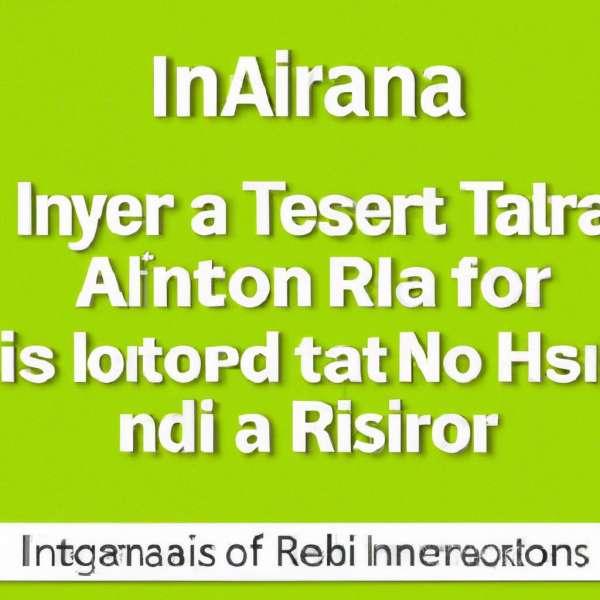Navigating the Path of Inherited IRAs: A Guide for Heirs
Inheriting a retirement account can be a bittersweet experience. On one hand, it may symbolize the love and foresight of a cherished family member; on the other, it introduces a maze of financial regulations and decisions that can overwhelm even the most seasoned investor. Inherited IRAs (Individual Retirement Accounts) come with their own set of rules and considerations, distinct from traditional retirement accounts. As you embark on this journey through financial legacies, understanding how to handle these accounts is crucial—not just for compliance with tax laws, but for effectively managing and possibly growing these funds. In this article, we will break down the complexities of inherited IRAs, offering clarity on what to do next, the options available to you, and the best practices to ensure that your loved one’s gift is managed wisely and with respect. Whether you are a seasoned beneficiary or navigating this territory for the first time, this guide aims to illuminate the path ahead, transforming a daunting task into an informed opportunity.

Understanding the Basics of Inherited IRAs
When you inherit an Individual Retirement Account (IRA), it’s crucial to grasp the fundamental aspects that govern how these accounts function. Unlike traditional accounts, inherited IRAs come with distinct rules and options tailored to the beneficiary’s situation. Understanding these nuances will guide you in making informed decisions about how to manage the account effectively.
One of the first steps to consider is the type of IRA you have inherited. Generally, inherited IRAs are categorized into two main types: Inherited Traditional IRAs and Inherited Roth IRAs. Each has its own tax implications and distribution requirements. Here’s a quick breakdown:
| Type of IRA | Tax Treatment | Distribution Rules |
|---|---|---|
| Inherited Traditional IRA | Taxable upon withdrawal | Must begin distributions by age 72 or within 10 years of the original owner’s death |
| Inherited Roth IRA | Tax-free withdrawals | No required minimum distributions during the owner’s lifetime; 5-year rule applies for non-spousal beneficiaries |
Another essential factor is recognizing who the beneficiary is, as this influences how the IRA can be handled. Spouses, for instance, enjoy different options compared to non-spousal beneficiaries, like the ability to roll the inherited IRA into their own retirement account. Non-spousal beneficiaries typically must open an inherited account and take distributions based on IRS guidelines. Consult with a financial advisor or tax specialist, as understanding your role in this process allows you to strategize the best way to preserve and grow your inheritance while complying with applicable laws.

Navigating Tax Implications for Beneficiaries
When it comes to Inherited IRAs, understanding the tax implications is crucial for beneficiaries. One of the first steps is to recognize that traditional Inherited IRAs differ significantly in their tax treatments compared to Roth IRAs. While traditional IRAs require distributions to be taxed as ordinary income, qualified withdrawals from Roth IRAs are typically tax-free. This distinction plays a pivotal role in strategizing withdrawals and managing tax liabilities efficiently.
Beneficiaries of Inherited IRAs have several options to consider, each carrying its own tax implications:
- Stretch IRA: Allows you to take required minimum distributions (RMDs) based on your life expectancy, thus prolonging tax-deferred growth.
- Lump-Sum Distribution: Beneficiaries can choose to withdraw the entire balance at once, leading to significant tax obligations in that tax year.
- Inherited IRA Account: Establishing a new account to manage the inherited assets can help in gradual tax management and keep personal funds separate.
- Transfer to a Roth IRA: Converting to a Roth could be beneficial for those who expect to be in a higher tax bracket in the future, but it would require immediate tax payment on converted amounts.
It’s essential to also be aware of the IRS guidelines regarding distributions for Inherited IRAs, especially after the SECURE Act of 2019. Under this legislation, most non-spouse beneficiaries are required to fully distribute the account within ten years of inheritance, which can significantly impact tax planning strategies. Below is a concise table summarizing key points for various types of beneficiaries:
| Type of Beneficiary | Distribution Rule | Tax Status |
|---|---|---|
| Spousal Beneficiary | Can treat as own IRA or take distributions over their lifetime | Taxed based on regular income |
| Non-Spousal Beneficiary | Must withdraw within 10 years | Taxed based on regular income |
| Minor Child of Owner | Can stretch until age of majority | Taxed based on regular income |
Engaging with a tax professional or financial advisor who understands these nuances is highly recommended. They can provide personalized guidance to maximize benefits and minimize taxes associated with Inherited IRAs, ensuring your decisions align with your long-term financial goals.

Strategies for Managing Investments within an Inherited IRA
When it comes to managing the investments within an Inherited IRA, it is essential to take a proactive approach tailored to your financial goals and circumstances. Consider the following strategies to optimize your inherited assets:
- Understand Tax Implications: Familiarize yourself with the tax rules that apply to inherited IRAs. The Secure Act of 2019 changed the distribution timeline for most beneficiaries, so knowing how to navigate these rules is crucial.
- Evaluate Investment Options: Assess the investment vehicles within the IRA. Diversifying your allocation can provide stability. You may opt for a mix of stocks, bonds, or mutual funds based on your risk tolerance and investment timeline.
- Long-Term Considerations: While you may be required to withdraw a minimum amount annually, consider the benefits of staying invested. With a longer time horizon, your inherited IRA may have the potential for growth.
- Consult a Financial Advisor: Partnering with a financial expert can provide valuable insights tailored to your situation and help devise a robust investment strategy.
Another effective way to manage your inherited IRA investments is to regularly monitor and review your portfolio’s performance. Keeping an eye on market trends and adjusting your investments accordingly can make a significant difference. For instance:
| Investment Type | Performance Review Frequency | Considerations |
|---|---|---|
| Stocks | Quarterly | High volatility; rebalance as needed. |
| Bonds | Annually | Check interest rates and bond yields. |
| Mutual Funds | Semi-Annually | Evaluate fund performance relative to benchmarks. |
being strategic about how you manage your investments within an Inherited IRA can significantly influence your financial well-being. With thoughtful planning and regular assessments, you can harness the potential of your inherited assets, ensuring they align with your long-term financial goals.

Making the Most of Distribution Options and Timelines
When managing an inherited IRA, it’s essential to understand the various distribution options available to you, as they can significantly impact your financial planning. Each option comes with different timelines and consequences, which can either benefit your financial health or complicate your situation. Here are some key strategies to consider:
- Understand the Account Type: Determining whether the inherited IRA is a traditional or Roth account is crucial. This will influence your tax liabilities upon withdrawal.
- Evaluate Distribution Methods: You have several methods for taking distributions, including a lump-sum withdrawal or spreading withdrawals over a specified period. Each has different tax ramifications.
- Consult IRS Guidelines: Familiarize yourself with IRS rules regarding required minimum distributions (RMDs) to avoid penalties and unintended tax rates.
Timelines play a vital role in your decision-making process. Generally, the IRS requires you to begin taking distributions within a certain period after the account holder’s death. Below is a helpful overview of timelines to guide your planning:
| Distribution Method | Required Start Date | Distribution Period |
|---|---|---|
| Lump Sum | As soon as possible | Full balance in one year |
| 10-Year Rule | By the end of the 10th year | Flexible withdrawals within 10 years |
| Life Expectancy Method | By December 31 of the year following death | Based on the beneficiary’s life expectancy |
Additionally, engaging with a financial advisor can prove invaluable. They can help you navigate the complexities of distributions, ensuring you make informed choices that align with your overall financial goals. Remember, each decision can have lasting implications; thus, staying educated and proactive can lead to optimal outcomes.
Future Outlook
As you navigate the complexities of handling an inherited IRA, remember that knowledge is your strongest ally. The intricacies of tax implications, beneficiary options, and withdrawal strategies can seem daunting at first glance, but armed with the right information, you can make informed decisions that align with your financial goals. Whether you choose to stretch your distributions over time or opt for a more immediate approach, taking the time to understand your options is crucial. As you embark on this journey, consult with financial advisors or tax professionals who can offer personalized guidance tailored to your unique situation. Ultimately, by approaching your inherited IRA with clarity and insight, you can honor the legacy of your loved one while securing a prosperous financial future for yourself. Thank you for exploring this vital topic with us, and may your financial path be clear and fulfilling.


